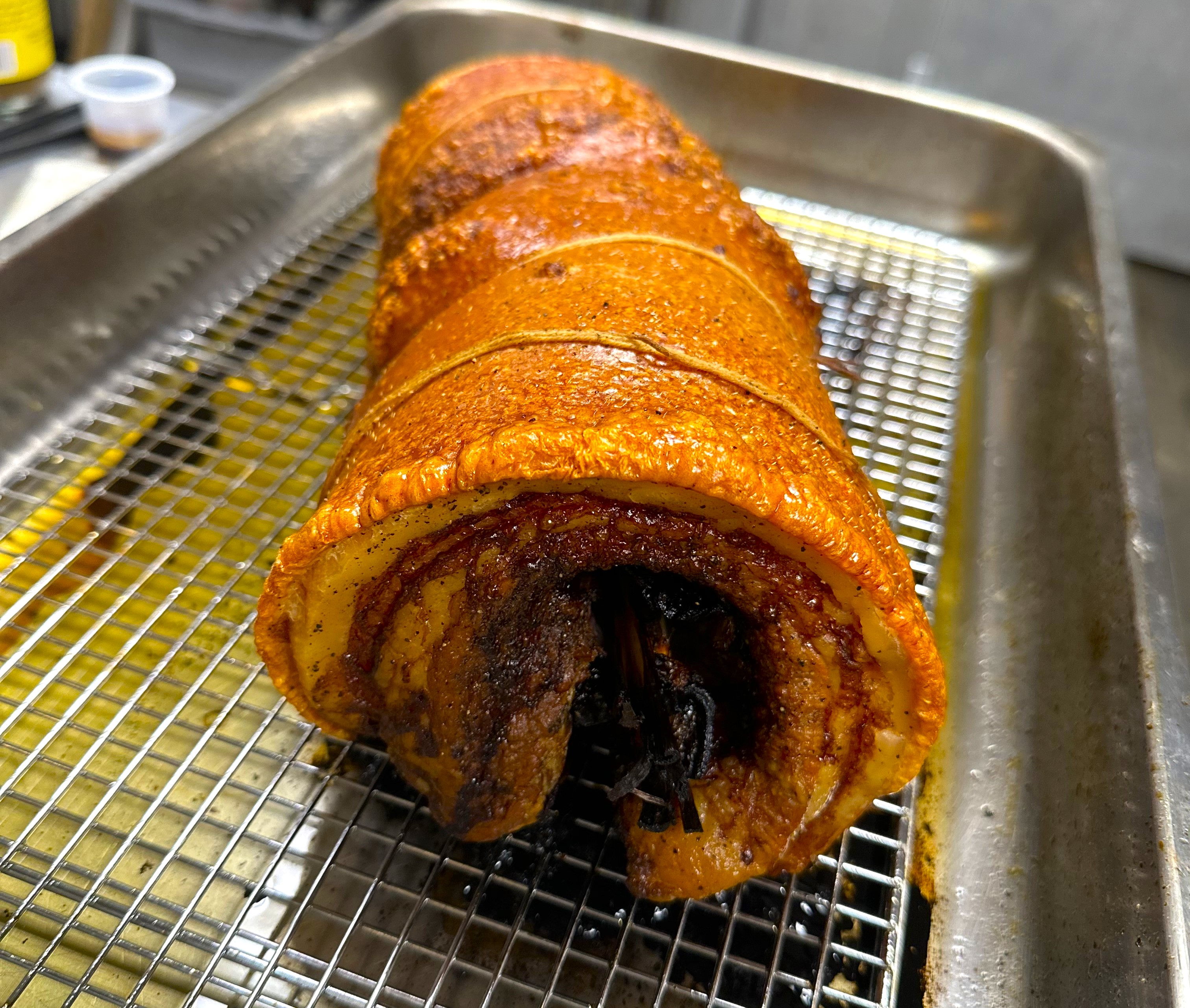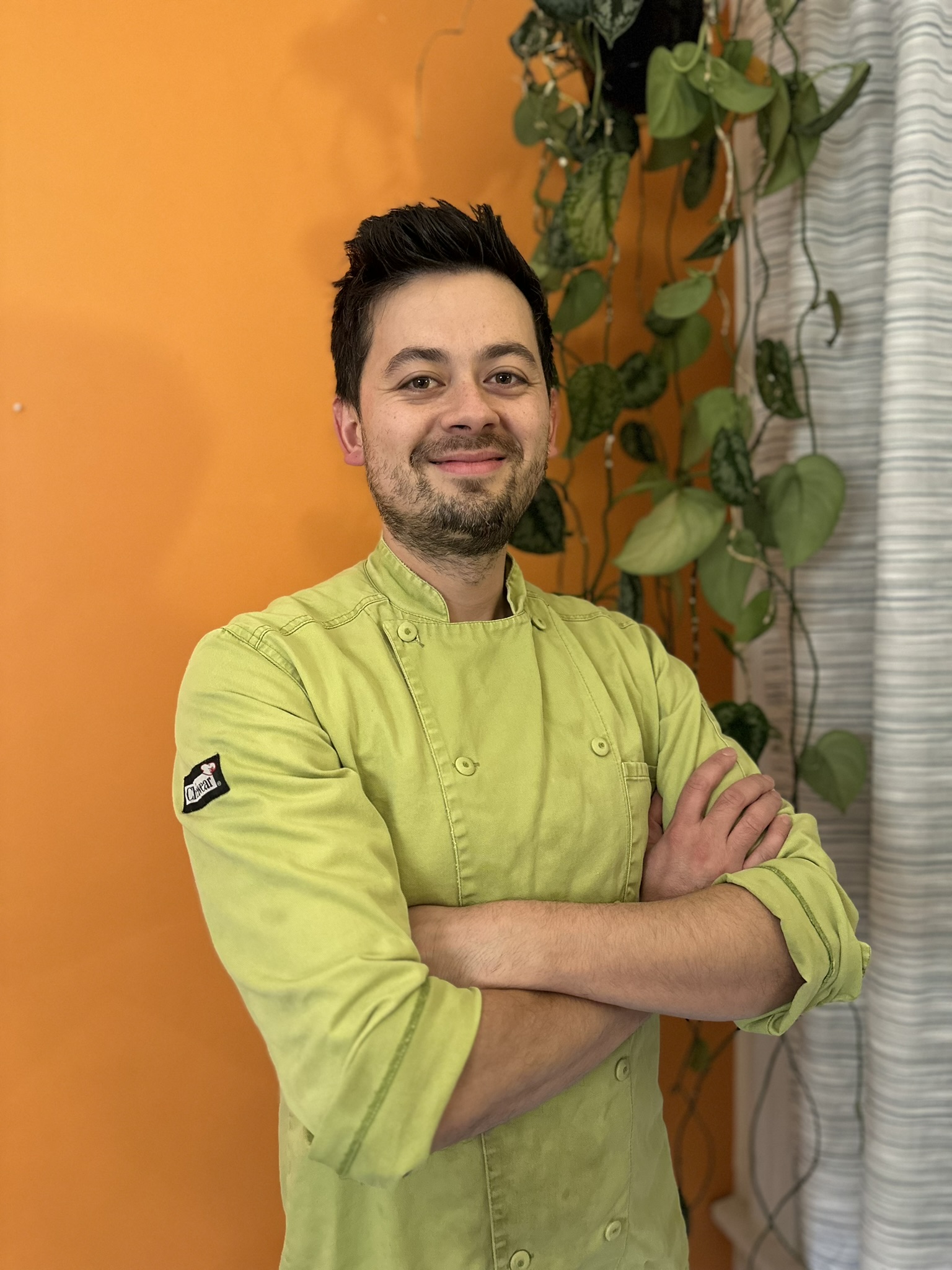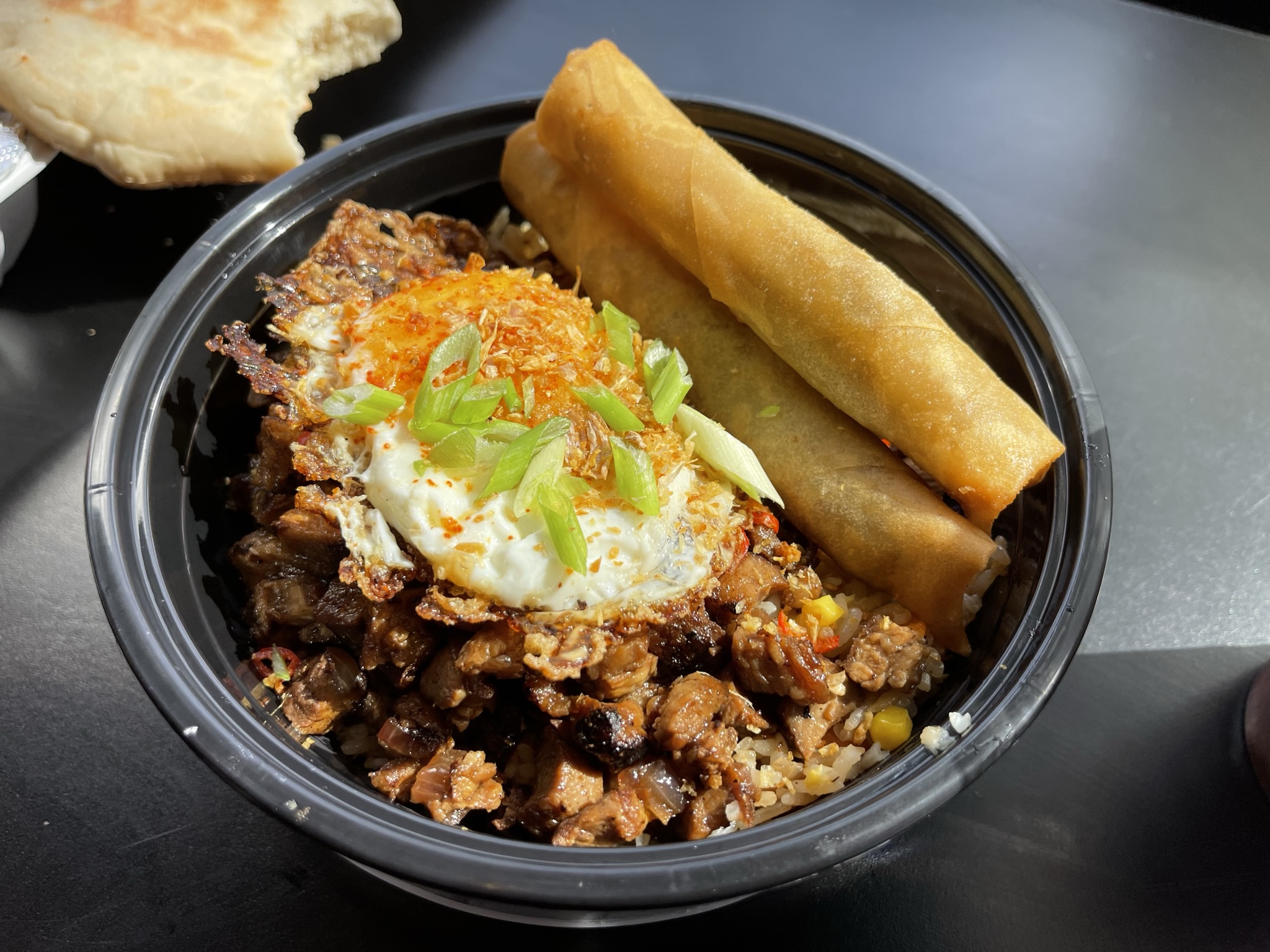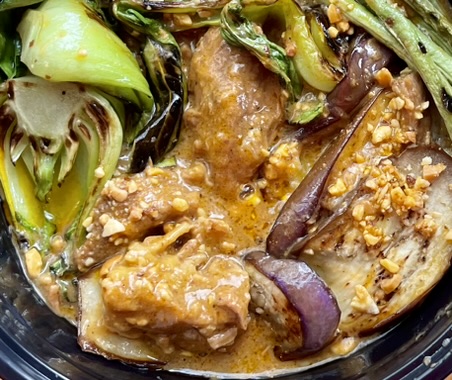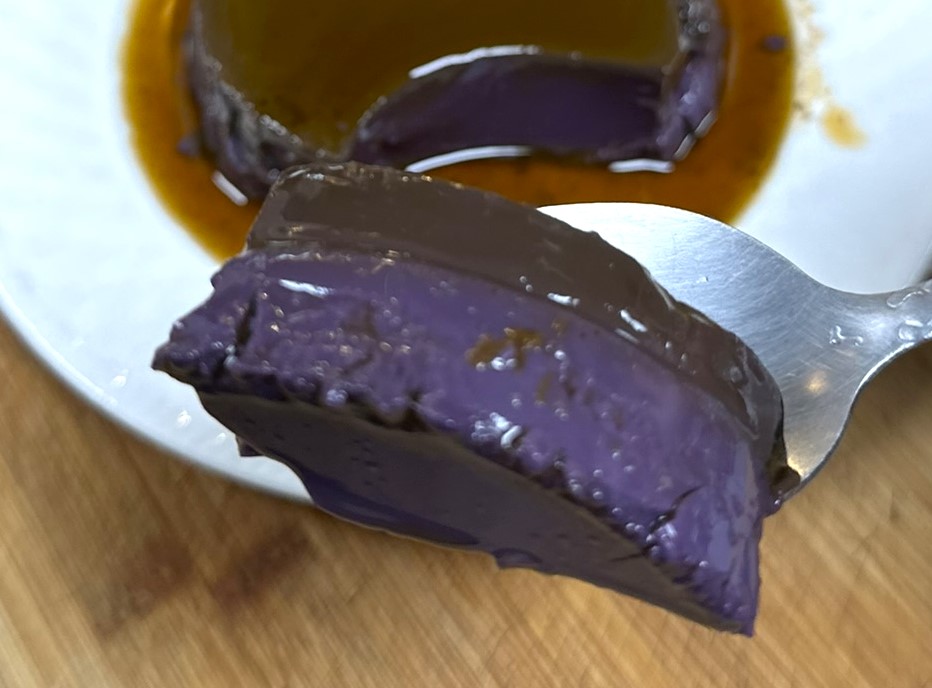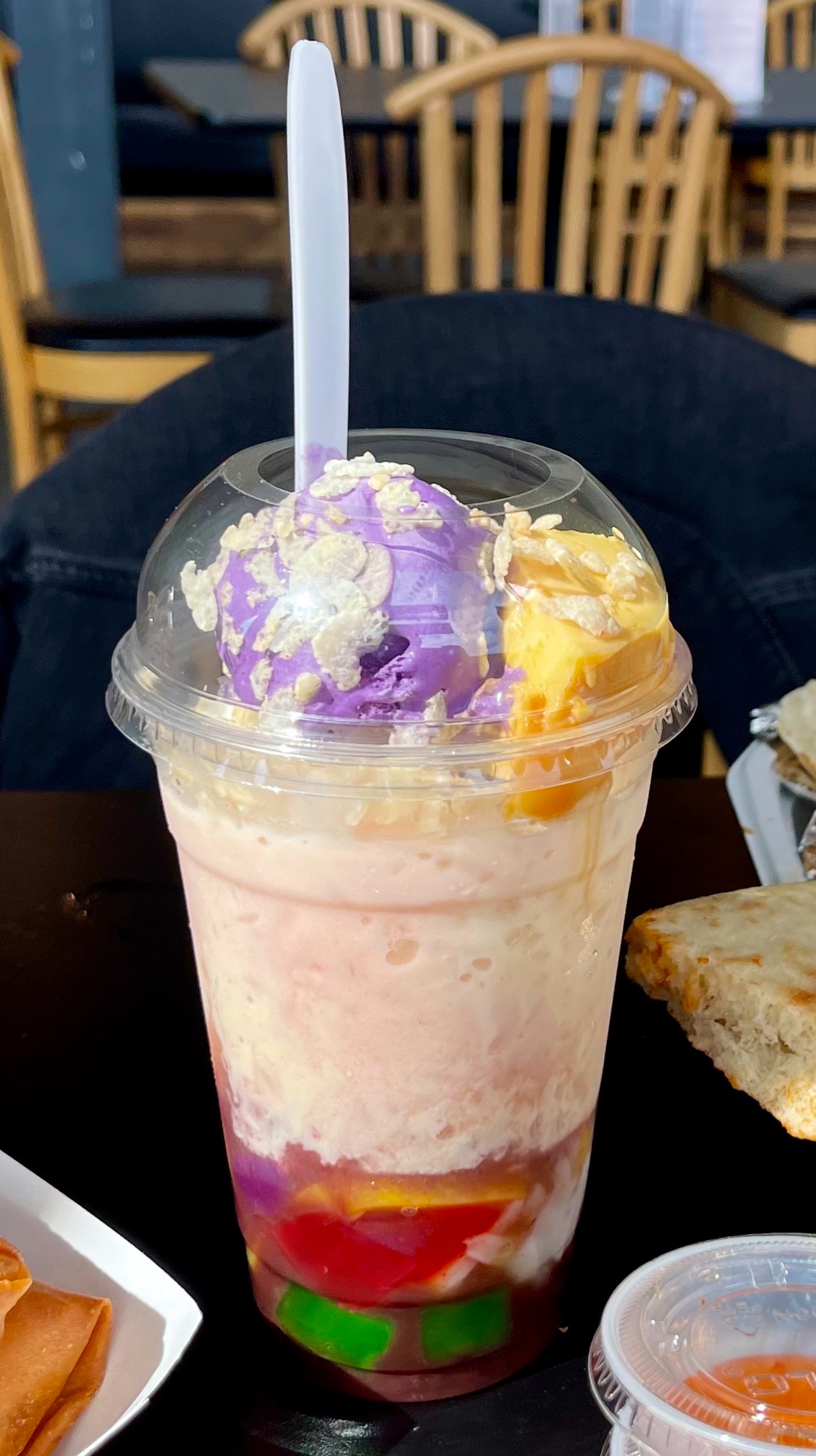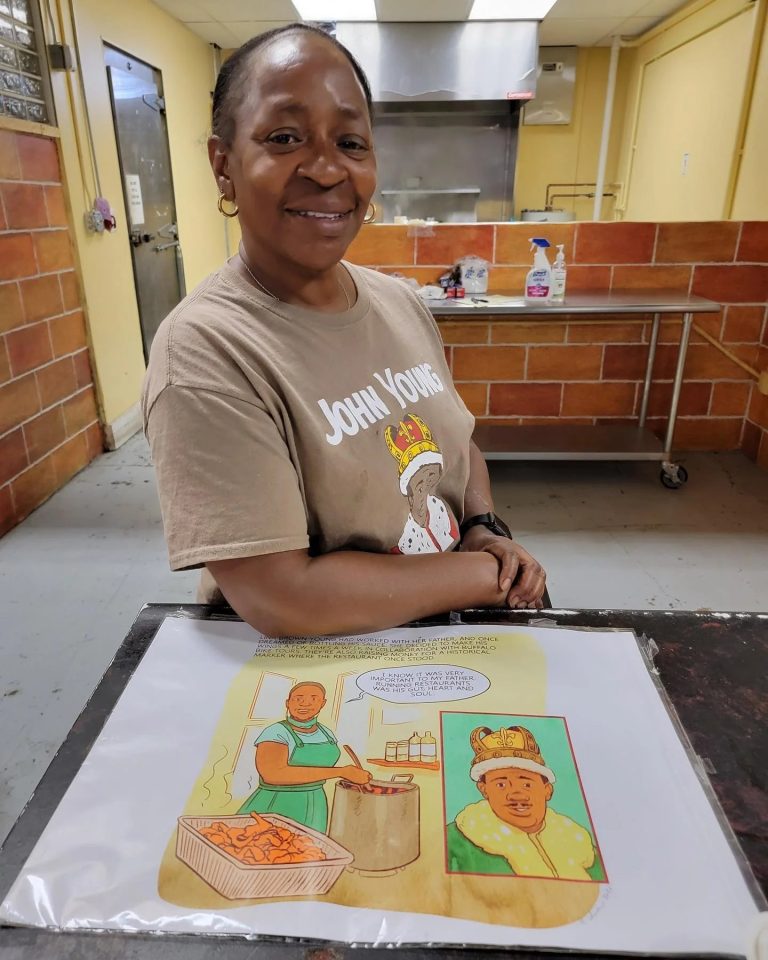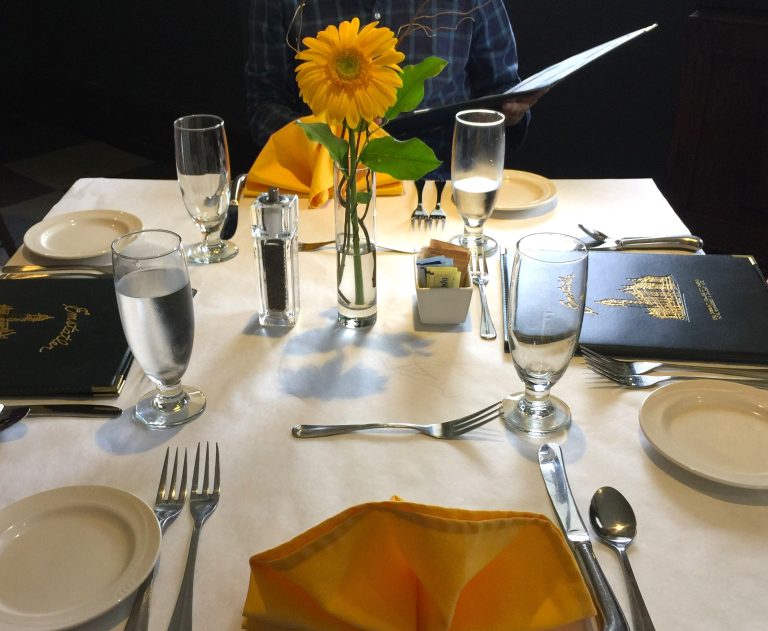When Lloyd Ligao bet on himself, channeling his childhood satisfactions, Buffalo eaters benefited
Lloyd Ligao was 10 when he left Olongapo, his hometown in the Philippines, on Subic Bay. Settled in Kenmore, he graduated Kenmore West Class of 2006, and went straight to work in restaurant kitchens.
At Marotto’s in Kenmore and North Tonawanda’s Remington Tavern, during years of hot line pan-juggling and shucking under pressure, Ligao earned his stripes as a professional cook. When the pandemic put the restaurant world on pause, Ligao decided that if he was going to work that hard, it better be for himself. So he steeled himself, counted his money twice, and leaped.
The Westminster Economic Development Initiative’s West Side Bazaar program was there with the net. With the non-profit’s support, Ligao became his his own boss for the first time, which has become something of a WEDI specialty.
After pop-ups at the Broadway Market, Ligao debuted in April. Like fellow 617 Main St. restaurateurs Zelelam Gemmeda, of Abyssinia Ethiopian Cuisine, and Akec Aguer, who operates the South Sudanese Nile River, Ligao’s work offers his new hometown the only chance to taste the flavors of his birthplace.
Filipino cooking weaves its eternal golden braid of sour, salty, sweet from calamansi lime and vinegar, soy sauce, and palm sugars. Garlic, scallions, and shallots are ubiquitous. Standard-issue rice in Filipino dishes is usually garlic fried rice, tossed in garlic oil and bits of toasted garlic with no burnt allium harshness.
Filipino lumpia, crispy-skinned fried rolls with pork or vegetable stuffing, are snacks, or sides with other dishes. Ligao’s pork classics (3/$5, 6/$9) also augment dishes like pork sisig with egg ($16), Pinoy Boi’s best-seller. Pork belly marinated in Filipino soy sauce with calamansi lime gets a stir-fry with chile and red onion. Plated over garlic fried rice, it gets draped with a fried egg, with a pair of lumpia for company.
Beef kare-kare ($16) is a long-simmered marriage of beef and peanut, served alongside plenty of vegetables, like eggplant, bok choy, and long beans. It’s closer to African groundnut stew than curry, and not spicy in the least.
Lines form Saturdays for Pinoy Boi’s lechon, skin-on pork belly wrapped around lemongrass, green onions, and shallots, then judiciously roasted until the skin is crisp and bronzed, hiding juicy layers of meat and fat. Ligao heaps chopped lechon over jasmine rice, adds more fried shallots, a pair of lumpia, and two dipping sauces. For $20.
Both add dimensions: ginger-scallion oil, akin to the classic Chinese barbecue condiment, and Mang Tomas, a Filipino lechon sauce made from bread crumbs, pork liver, garlic, vinegar, and brown sugar.
Ligao’s sweet endings include ube flan ($7), made with the purple sweet potato and double the egg yolks of standard flan recipes. The result can only be described as uberflan, the most richly rewarding flan in memory, all the better with violet spoonfuls swirled in the bittersweet caramel sauce.
Avocado ice cream sounded odd until I spooned up Pinoy Boi’s. As the second spoonful sunk in, it hit harder than ever that avocado is a fruit. Then there’s halo-halo ($8/$10), a shaved ice dessert often sold by street vendors. It’s full of red, green, and orange jelly cubes, sweet beans, and a dollop of purple housemade ube ice cream.
This review is for Pinoy Boi, but its neighbors deserve your full attention as well.
There’s more worth mentioning, and discovering for yourself. This is the splendor of having diligent representations of the world’s best dishes within easy reach, Tuesday through Saturday, 11 a.m.-8 p.m.
This is food with heart, and soul, made with the care of people who struggled to get the chance to serve it daily. That shows in the quality of the dishes. They’re not only cooking for money, they’re representing, and hungry passersby benefit thereby.
In conclusion, there are times when only AC/DC suffices.
For those about to cook: We salute you.
617 Main St. (Downtown Bazaar)
pinoyboibuffalo.square.site, Instagram: pinoyboi_buf
Hours: 11 a.m.-8 p.m. Tuesday-Saturday. Closed Sunday, Monday.
Quiet surroundings, usually plenty of tables.
Parking: street
#30#

